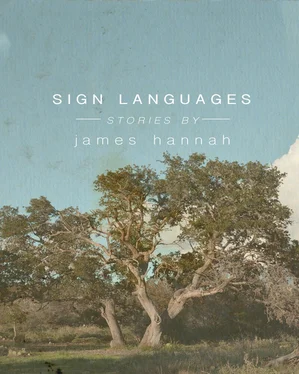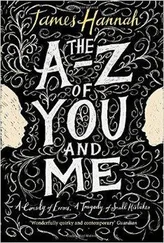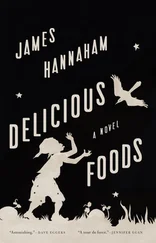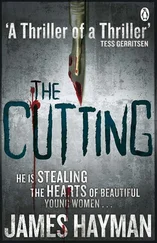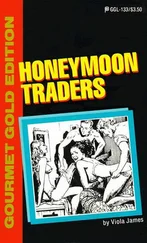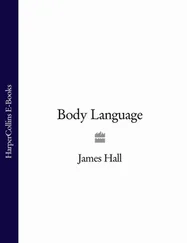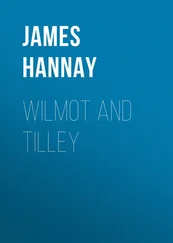James Hannah - Sign Languages
Здесь есть возможность читать онлайн «James Hannah - Sign Languages» весь текст электронной книги совершенно бесплатно (целиком полную версию без сокращений). В некоторых случаях можно слушать аудио, скачать через торрент в формате fb2 и присутствует краткое содержание. Год выпуска: 2015, Издательство: Dzanc Books, Жанр: Современная проза, на английском языке. Описание произведения, (предисловие) а так же отзывы посетителей доступны на портале библиотеки ЛибКат.
- Название:Sign Languages
- Автор:
- Издательство:Dzanc Books
- Жанр:
- Год:2015
- ISBN:нет данных
- Рейтинг книги:5 / 5. Голосов: 1
-
Избранное:Добавить в избранное
- Отзывы:
-
Ваша оценка:
- 100
- 1
- 2
- 3
- 4
- 5
Sign Languages: краткое содержание, описание и аннотация
Предлагаем к чтению аннотацию, описание, краткое содержание или предисловие (зависит от того, что написал сам автор книги «Sign Languages»). Если вы не нашли необходимую информацию о книге — напишите в комментариях, мы постараемся отыскать её.
Sign Languages — читать онлайн бесплатно полную книгу (весь текст) целиком
Ниже представлен текст книги, разбитый по страницам. Система сохранения места последней прочитанной страницы, позволяет с удобством читать онлайн бесплатно книгу «Sign Languages», без необходимости каждый раз заново искать на чём Вы остановились. Поставьте закладку, и сможете в любой момент перейти на страницу, на которой закончили чтение.
Интервал:
Закладка:
He no longer cried out so Claudia or his wife rushed in to him. He either sat still or more often rose from the stuffed chair and lay on the bed, pulling the wilted sheet and quilt up to his neck. The feeble man feeling like a child. His emaciated body a boy’s body tormented by some sort of flu whose fever explained the drenching sweat.
He recalled that his initial feelings about the cathedral had been unmolested for a while. Before the advent of whatever it was that always acted as some potent distillate ungluing this and that in his life. Leaving the boy ill in his bed, the puzzle spread out on the quilt near his hands, unassembled.
But it was never God, hidden somewhere in the huge sky of the dome, he asked for. It was Filippo Brunelleschi. For only he could gather up the materials from the quilt and piece them together and leave them together for Evan to see until the unsticking came again.
The ill boy closed his eyes. He might stand up in a moment, the sweat gone. He might softly call out to Claudia or his wife and listen to his voice.
The medicine would be improved again. And such advances would keep him alive for twenty years more.
SIGN LANGUAGE
Friday
The 727 turned to the southwest and vanished into the thunderheads of midsummer. Most of his life, he thought, was captive in that thin shell. And as he turned from the window to face the crowded lobby two thoughts occurred. Or rather, one sharp picture and a hideous thought superimposed. There was a bare field, just off a runway — punctuated by curious lights in cages, white-topped fence posts — and a looming huge fragment of a tail section. This, he knew, was one of those lasting TV images, from the Dallas crash of a few years ago. But the second thing was the unpleasant thought; I’m alone.
Halfway across the carpeted area, Charles turned around and walked back to the glass and waited and watched an identical American Airlines plane rise and bank to the south and vanish. He worried after all those strangers and their families.
Back in the traffic, the car radio on, he wondered what he would do for the next three days. And finally, out of the city, the sun setting beyond the green hills north of Nashville, he still hadn’t come up with any answers. Though, unwillingly, he acknowledged a second unpleasant thought: He didn’t miss them at all. Not Annie or the girls. But of course not, you jackass. He looked at his watch quickly, always a too careful driver. They’ve only been gone an hour now. Soon they’ll be there and he’d still have two hours to drive before he reached the quiet town and empty house.
Some of the guys at work had suggested driving up to St. Louis for a ball game, but Charles had turned down that and all other invitations until someone had nudged him and winked. The secretaries had pursed their lips.
“Batching this weekend, huh? Take-out pizza and beer.”
“Sink full of dirty dishes I bet.”
Now he wished he’d gone. He hadn’t been to a major-league game in years.
A half hour from home he stopped for gas. And, at the register, he turned to the attraction of flashing lights and gaudy, homemade signs over the deli counter. He bought the big basket of fried chicken livers and potato wedges, a Hostess fried apple pie, and root beer.
But out on the road again, the villages and river bridges becoming familiar, he was ashamed of himself. He glanced down at his soft belly and measured its distance from the wheel by turning his hand sideways. Still four fingers away, though he sucked in more deeply than ever. This isn’t good, he thought, and swerved off the road, scattering rocks against a roadside dumpster. He ate exactly four more of the greasy livers and hurled the sack and the fizzing A&W can into the overflowing container.
He hadn’t driven on the highway after dark in years, and his eyes ached. He cursed other drivers who didn’t dim their lights until the last minute and who seemed too close to his side of the road. He thought about all sorts of things, his mind the usual collage of odds and ends. He remembered a movie about a man who went above the Arctic Circle to study wolves; set down alone in the beauty of places where there are no people at all. Different from those Sierra Club calendars of such places. In the movie there was only the man surrounded by wild hearts and shallow, interpreting breaths.
It was almost eleven when Charles came into town. He’d promised Paul he’d come by no matter the hour for one of his famous Manhattans. But instead he drove slowly past their house on Oakridge and smiled guiltily because he saw all of them in front of the opened bay window, their backs to the street, playing some video game. The blue light of TV showed in most of the houses behind drapes and blinds.
He parked behind the pickup. Two vehicles in the driveway and one driver. But he didn’t get out immediately, pick up the evening paper, unlock the doors, turn off the porch light Annie’d left on for him. Instead he watched the moths circle the yellow bulb, his mind busy with all the usual tangle, his breath a little shallow. He felt the tightness in his chest which often awakened him, worried him, worried him even more because he hadn’t told anyone. Though he was sure it was anxiety, stress from work. His stiff penis pushed at his khaki pants. His breathing reminding him of the moment Molly, the oldest, was born.
After a while he picked up the paper and unlocked the door. But inside, he decided to leave the porch light on. Afraid of the dark? he thought. “Nothing’ll get you, you know.” He spoke and smiled at what he told the kids when they all came home after a Disney movie or Wendy’s.
He walked through all the rooms pulling down windows and closing blinds and curtains. In the girls’ room he got on his hands and knees and dislodged a startlingly real doll baby from between the bunk-bed rails and the wall. This was Susan’s, the four-year-old’s, favorite place to stash things. In the dimness under the bed he confronted a row of carefully arranged animals and dolls. Tigers and bears and the incongruously small Ken and Barbie.
At midnight he shut off the local radio station’s classical hour and sat at the kitchen table, his eyes rummaging over familiar things, many of them almost-decrepit wedding gifts. Last week he’d tried rewiring the sixteen-year-old toaster that gladly accepted bread and instantly, in some electrical supernova, produced squares of charcoal. But now there was the new one with the latest options, extra-wide slots for bagels, in the ritzy patina of brushed stainless steel.
Charles listened for a moment to the buzz of his thoughts and heard his concern for aging faucets, failed cabinet locks, proposals due at work, the muddled melody of something by Brahms.
He thought about how he hadn’t been this alone in years. He simply couldn’t remember when. He recalled from nowhere the picture of a girl named Brandy sitting astride him, her small breasts jiggling in the firelight. From a camping trip in college. He’d considered camping and canoeing a passion then. But now he thought about how elaborate and purposeful it all was. Choosing this item over that. Being superior and particular. The now-embarrassing extolling of nature’s virtues. And he’d never gone anywhere alone. There was no solitude, communion, whatever those hip phrases had been. He’d sawed off his toothbrush handle to save space. He’d exaggerated his Cherokee ancestry. There was seduction in tents and canoe bottoms. He saw his own bare ass pumping away, the silver canoe drifting between banks solid with pines and French mulberry.
He wanted something to happen now. He pushed the everyday thoughts away. His life right now was not taken up with his wife, the girls, the office, his blood pressure, taxes, his mother’s failing health. For a moment he remembered he’d promised he’d phone her after Annie and the girls left for his brother-in-law’s wedding in Miami. Then he snagged himself on Annie’s promise to call in the morning before the rehearsal.
Читать дальшеИнтервал:
Закладка:
Похожие книги на «Sign Languages»
Представляем Вашему вниманию похожие книги на «Sign Languages» списком для выбора. Мы отобрали схожую по названию и смыслу литературу в надежде предоставить читателям больше вариантов отыскать новые, интересные, ещё непрочитанные произведения.
Обсуждение, отзывы о книге «Sign Languages» и просто собственные мнения читателей. Оставьте ваши комментарии, напишите, что Вы думаете о произведении, его смысле или главных героях. Укажите что конкретно понравилось, а что нет, и почему Вы так считаете.
